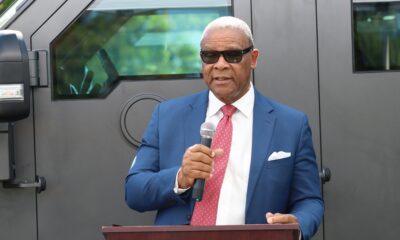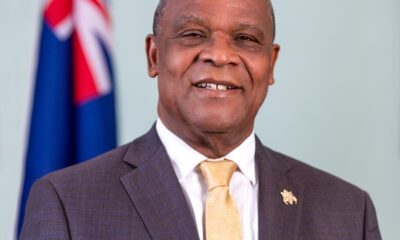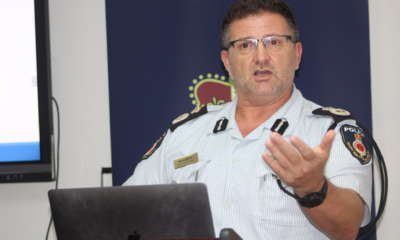Dana Malcolm
Staff Writer
#TurksandCaicos, April 19, 2024 – In an attempt to move to 24-hour-a-day operations Turks and Caicos Islands Airports Authority (TCIAA) is steadily recruiting Air Traffic Controllers to work at the Providenciales/Howard Hamilton International Airport, according to Godfrey Smith, TCIAA CEO, reporting to the Appropriations Committee.
Speaking on April 8th Smith said a cabinet paper would be sent soon requesting six more Air Traffic Controllers to make round the clock operation at the Provo International possible and to open the airport in Grand Turk till 12 a.m.
Currently, 17 posts are filled and seven are vacant.
Smith was candid with his responses to recent industrial action from ATCs which led to resignations and firings.
“What we have to do is find systems to mitigate such actions and that has to start with filling these jobs, putting people in that want to work and doing right by people – and we always try to do right by our staff. Persons may not think that we are but we always do – we ain’t pick no fight,” he said in the meetings held at the NJS Francis building ahead of the National Budget Communication.
work and doing right by people – and we always try to do right by our staff. Persons may not think that we are but we always do – we ain’t pick no fight,” he said in the meetings held at the NJS Francis building ahead of the National Budget Communication.
Smith indicated that recruitment was an issue across the board, ‘we need to find ways to recruit a little bit better’ he told the committee. Also in need of a push was capital spending or projects according to the CEO, who said the agency had ‘not been very good’ at meeting that mark but insisted they had recognized the issue and could do better.
A very important key performance indicator drawn up by the TCIAA is increasing passenger satisfaction at the Howard Hamilton International Airport. For the TCIAA part of this means a 30 percent increase in seating by Q2 of this year.
When queried on if they could even handle this increase the CEO said,
“The fact of the matter is we already have the capacity there. What we need is to make the service a bit better.”
Staff shortages have become such a frustrating issue that the TCIAA is instituting a scholarship program created by Authority Chairman, Selvyn Hawkins
“What the board wants to do is basically allocate $25,000 annually for a scholarship and they’ve approved it already.”
This process would cover tuition and all other costs for one student.
The student would return as a summer intern and other breaks to work at the TCIAA and upon graduation, assume a role at the company.
“We identify a particular skill we need, we go after it and we build capacity that is in a nutshell the nexus of the program,” Smith said.
The Turks and Caicos Islands Airports Authority (TCIAA) is allocated $49 million this financial year; over $20 million goes to salaries.

 News6 days ago
News6 days ago
 Health6 days ago
Health6 days ago
 TCI News2 days ago
TCI News2 days ago
 Caribbean News5 days ago
Caribbean News5 days ago
 Education5 days ago
Education5 days ago
 Caribbean News1 week ago
Caribbean News1 week ago
 Caribbean News5 days ago
Caribbean News5 days ago
 Bahamas News1 week ago
Bahamas News1 week ago

























